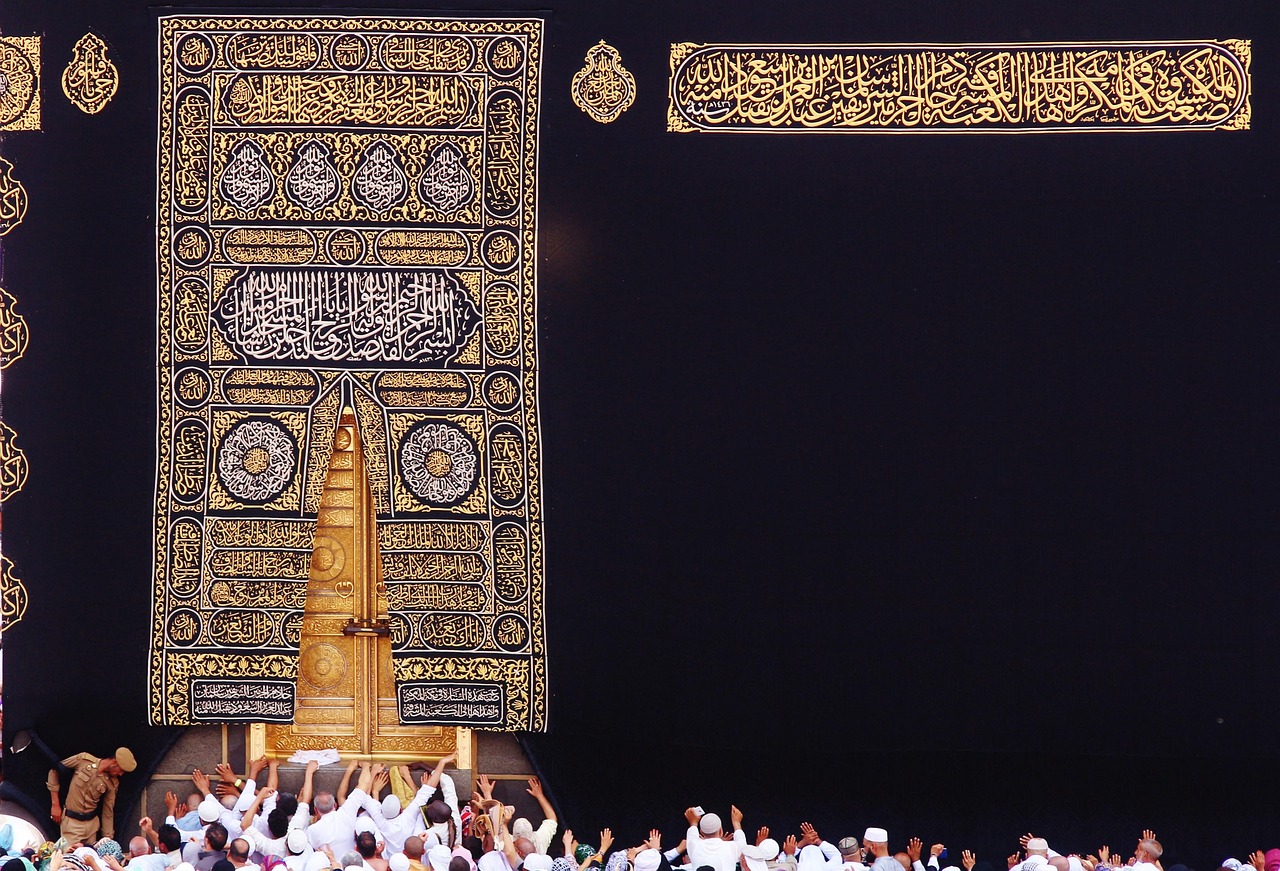Early Islam and the World
Bedouin: nomadic pastoralists of the Arabian peninsula with a culture based on herding camels and goats.
Shaykhs: leaders of tribes and clans within bedouin society; usually possessed large herds, several wives, and many children.
Mecca: Arabian commercial center; dominated by the Quraysh; the home of Muhammad and the future center of Islam.
Medina: town northeast of Mecca; asked Muhammad to resolve its intergroup differences;
Muhammad’s flight to Medina, the hijra, in 622 began the Muslim calendar.
Umayyad: clan of the Quraysh that dominated Mecca; later an Islamic dynasty.
Muhammad: (570-632); prophet of Allah; originally a merchant of the Quraysh.
Khadijah: the wife of Muhammad.
Ka’ba: revered pre-Islamic shrine in Mecca; incorporated into Muslim worship.
Qur’an: the word of god as revealed through Muhammad; made into the holy book of Islam.
Umma: community of the faithful within Islam.
Zakat: tax for charity obligatory for all Muslims.
Five pillars: the obligatory religious duties for all Muslims: confession of faith, prayer, fasting during Ramadan, zakat, and hajj (pilgrimage to Mecca).
Caliph: the successor to Muhammad as head of the Islamic community.
Ali: cousin and son-in-law of Muhammad; one of the orthodox caliphs; focus for the
development of shi’ism.
Abu Bakr: succeeded Muhammad as the first caliph.
Ridda: wars following Muhammad’s death; the defeat of rival prophets and opponents restored the unity of Islam.
Jihad: Islamic holy war.
Uthman: third caliph; his assassination set off a civil war within Islam between the Umayyads and Ali.
Siffin: battle fought in 657 between Ali and the Umayyads; led to negotiations that
fragmented Ali’s party.
Mu’awiya: first Umayyad caliph; his capital was Damascus.
Copts, Nestorians: Christian sects of Syria and Egypt; gave their support to the Arabic
Muslims.
Sunnis: followers of the majority interpretation within Islam; included the Umayyads.
Shi’a: followers of Ali’s interpretation of Islam.
Karbala: site of the defeat and death of Husayn, the son of Ali.
Mawali: non-Arab converts to Islam.
Jizya: head tax paid by all non-Muslims in Islamic lands.
Dhimmis: “the people of the book,” Jews, Christians; later extended to
Zoroastrians and Hindus.
Abbasids: dynasty that succeeded the Umayyads in 750; their capital was at Baghdad.
Hadiths: “traditions” of the prophet Muhammad; added to the Qur’an, form the essential writings of Islam.
Battle of the River Zab: 750; Abbasid victory over the Umayyads, near the Tigris. Led to
Abbasid ascendancy.
Baghdad: Abbasid capital, close to the old Persian capital of Ctesiphon.
Wazir: chief administrative official under the Abbasids.
Dhows: Arab sailing vessels; equipped with lateen sails; used by Arab merchants.
Ayan: the wealthy landed elite that emerged under the Abbasids.
